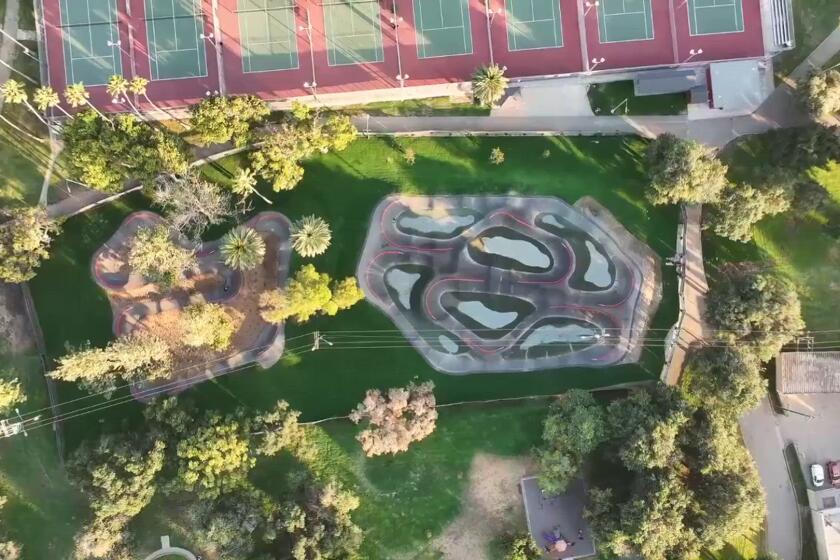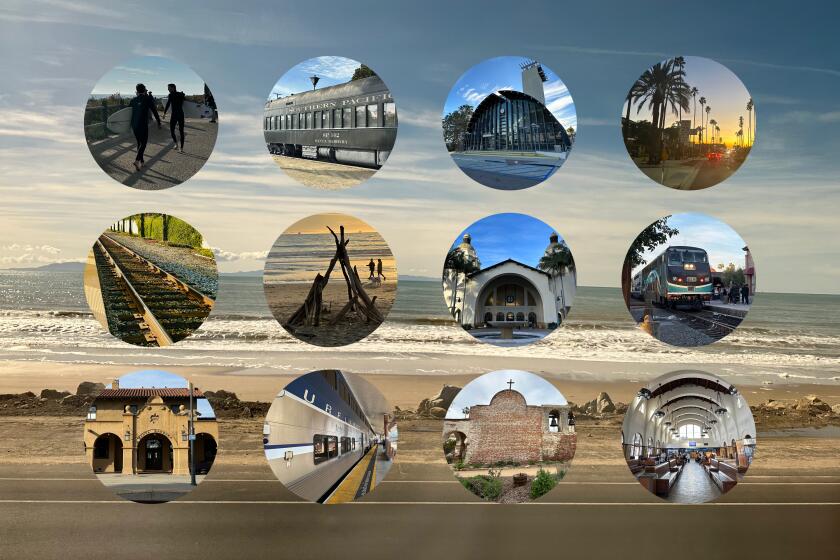On a Trip to Mexico, Minors and Paperwork Go Together : Red tape: Children traveling with grandparents, for example, need notarized, written permission from both their mother and father.
These days, many Southern Californians feel as confident crossing into Mexico for a weekend as they do driving to Santa Barbara or flying to San Francisco. They bring proof of citizenship; they buy Mexican car insurance if they’re driving; they dust off their Spanish. Many of those Californians bring children too--their own, nieces, nephews, grandsons, granddaughters, sometimes the children of friends.
But a large share of those travelers with children--especially those accustomed to scant attention from overwhelmed officials at Tijuana border facilities--probably aren’t carrying all the documentation that the Mexican government legally requires of them.
Those traveling by air risk running into a dead end when they check in at the airport. Those traveling by car might never be questioned in the crush at the border--but then again, they might be, or the question could arise later in their journey, potentially sending travelers home early.
Consider, for instance, the case of Venice grandmother Bernice Colman. Colman and her 14-year-old grandson, Brian, had planned a seven-day Mexico vacation, including a ride on the Copper Canyon Railroad.
The trip was to begin July 14, with a flight from LAX to Culiacan in the Mexican state of Sinaloa. As guidebooks had directed her, Colman approached the Aero California desk and produced a letter of notarized permission from her daughter, Brian’s mother.
It wasn’t enough. In most cases, Colman learned, Mexican immigration requirements call for signatures of authorization from both traveling minor’s parents. In this case, the parents were in Florida, and grandmother and grandson never got into Mexico that day.
In fact, because of delays in transporting rewritten train tickets, their departure was ultimately delayed from Thursday to Sunday. (Unlike many pressed-for-time American travelers, Colman and her grandson were flexible enough to start and end their journey three days later than planned.)
Here, as described by spokesman Miguel Escobar of the Mexican Consulate in Los Angeles, are Mexico’s entrance laws for Americans under age 18.
* Unaccompanied minors are forbidden from entry.
* When minors are accompanied by their parents, all travelers should have proof of nationality (usually a passport or birth certificate) and photo identification. (Alien residents in the U.S. must have proof of residency.)
* When a minor is accompanied by someone who is not his or her parent, the companion must produce a notarized letter of authorization signed by both of the minor’s parents. If one or both parents are dead, officials require a death certificate indicating as much.
* If the minor’s parents are divorced and one parent has custody, the parent traveling with the minor must produce divorce documentation and copies of the court papers awarding custody. If the child is traveling with the parent who doesn’t have custody, notarized permission is required from the parent who does.
Travelers who overlook these requirements “are risking an inconvenience,” Escobar warns.
“Sometimes you can get away with things, and sometimes you cannot,” he says.
Tourism professionals affirm that those requirements, especially the last, often come as a surprise to Mexico-bound Americans, even veteran Mexico hands.
Those most often surprised are grandparents and organizers of school trips, says Gina Cord, spokeswoman for IMPA Mexico Information in San Diego, which serves as the public relations representative for various Baja California organizations and operates a Baja hotel reservation service.
At least in theory, the restrictions serve two key purposes: blocking unescorted American teen-agers from getting into trouble south of the border (particularly American high school students on school breaks), and soothing fears that kidnapers, including parents in custody battles, could find refuge just outside U.S. borders.
Given the uneven enforcement of the requirements and the widespread ignorance of them on this side of the border, however, their usefulness is hard to gauge.
By contrast, neither Canada nor England maintains such legal requirements.
Consul and tourism officials representing both of those countries, however, say that in case questions do arise at customs or an airline counter, they recommend that minors traveling without both parents be accompanied by written authorization from the parents.
In fact, those tourism officials say, mothers who use different last names than their children might want to travel with a photocopied birth certificate, so that if they need to, they can produce documentation of their relationship with the child.
For more information regarding restrictions on travel in Mexico, contact the Mexican Consulate (in Los Angeles, 2401 West Sixth St.; telephone 213-351-6800; public hours: 7 a.m. to 1 p.m. weekdays) or the Mexican Government Tourism Office (10100 Santa Monica Blvd., Suite 224, Los Angeles; tel. 310-203-8191.)
Sign up for The Wild
We’ll help you find the best places to hike, bike and run, as well as the perfect silent spots for meditation and yoga.
You may occasionally receive promotional content from the Los Angeles Times.




